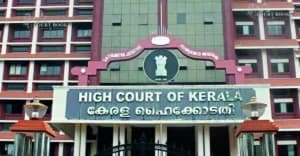The Supreme Court of India recently declined to entertain a plea challenging the 10% Maratha reservation in Maharashtra's government jobs and educational institutions for NEET UG and NEET PG 2025 aspirants. The bench, comprising Chief Justice of India (CJI) BR Gavai and Justice AG Masih, advised the petitioners to approach the Bombay High Court for relief.
Read Also:- Supreme Court to Hear Plea on NEET PG Marks Normalisation, Transparency Issues on May 20
The Bombay High Court is already handling multiple petitions against the Maharashtra State Reservation for Socially and Educationally Backward Classes (SEBC) Act, 2024, which grants 10% reservation to the Maratha community. The petitioners, represented by Senior Advocate Ravi K Deshpande and Advocate Ashwin Deshpande, requested an interim stay on the SEBC Act, specifically excluding NEET UG 2025 admissions from its scope.
The Maharashtra State Reservation for Socially and Educationally Backward Classes (SEBC) Act, 2024, was passed on February 20, 2024, and notified on February 26, 2024. It is based on the recommendations of the Justice (retired) Sunil B. Shukre-led Maharashtra State Backward Class Commission (MSBCC), which cited "exceptional circumstances and extraordinary situations" to justify the reservation.
Read Also:- Supreme Court Rejects Plea for Action Against BJP Minister Vijay Shah Over Remarks on Colonel Sofiya
The Maratha reservation issue has a long history. In 2018, the Devendra Fadnavis-led government passed the SEBC Act, granting 16% reservation to Marathas. However, in June 2019, the Bombay High Court reduced this quota to 12% in education and 13% in government jobs, citing a lack of justifiable grounds for the higher percentage.
In May 2021, the Supreme Court struck down the 2018 SEBC Act, stating that it violated the 50% reservation limit established by the 1992 Indra Sawhney (Mandal) judgment. The Court noted that no "extraordinary circumstances" justified the Maratha reservation and raised concerns about the data used to support the claim of Marathas' social backwardness.
The Maharashtra government filed a review petition against this judgment, which was rejected in April 2023. A subsequent curative petition is currently pending before the Supreme Court.
"No extraordinary circumstances justified the separate reservation for Marathas, which exceeded the 50 percent ceiling limit." — Supreme Court, May 2021
Case Details : DIYA RAMESH RATHI vs. STATE OF MAHARASHTRA| Diary No. - 24755/2025














